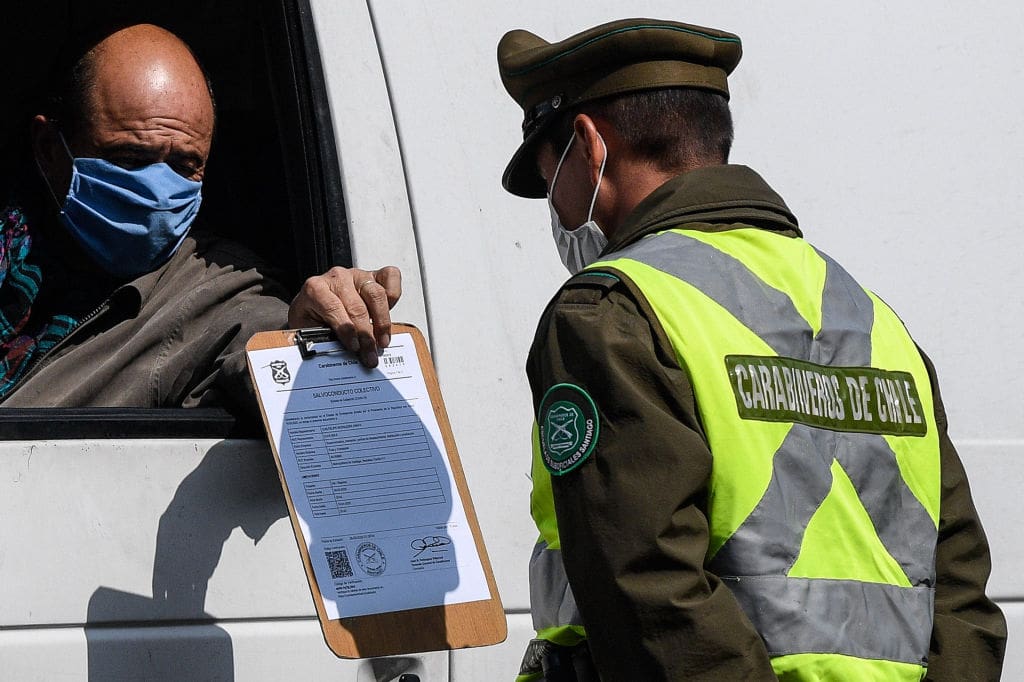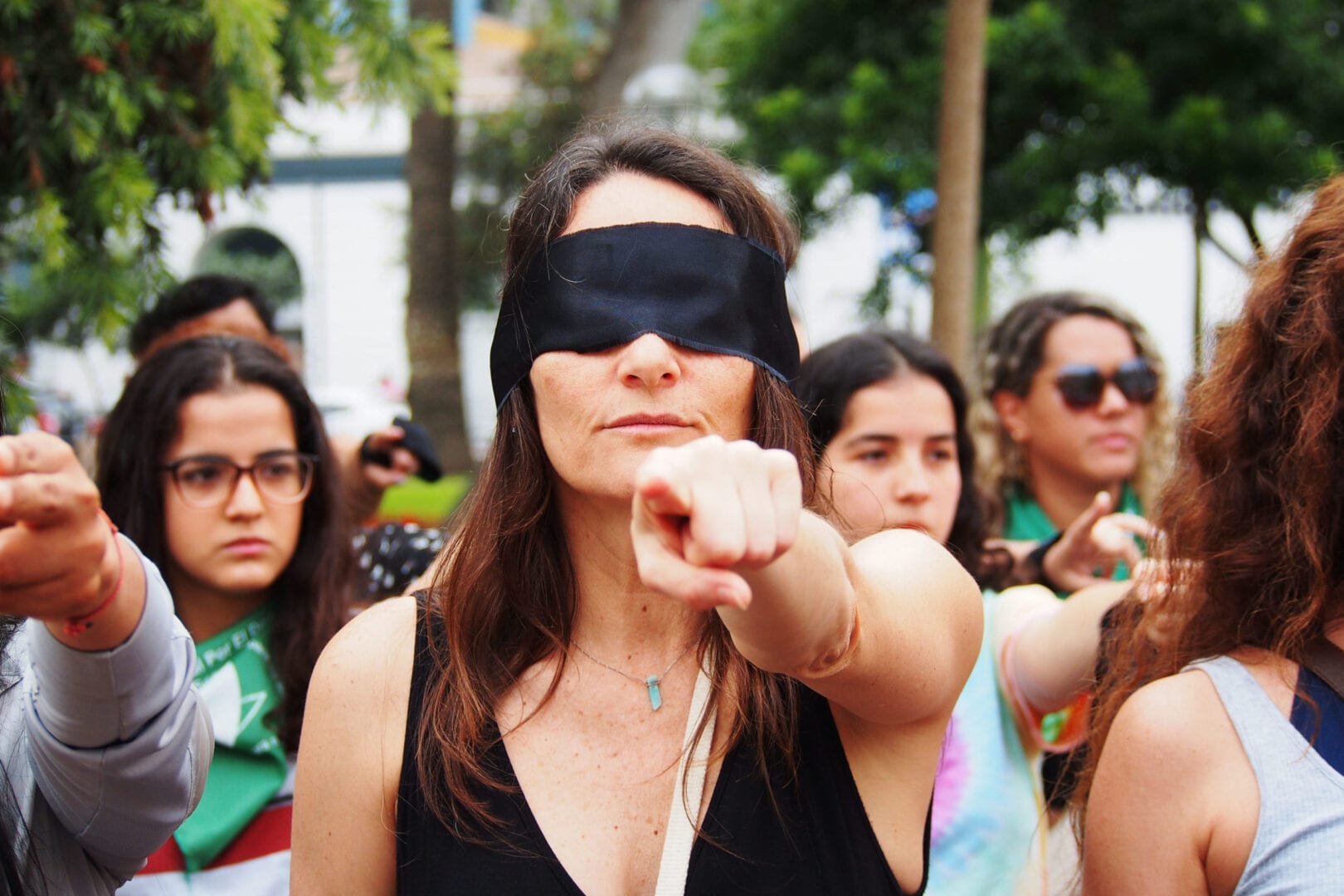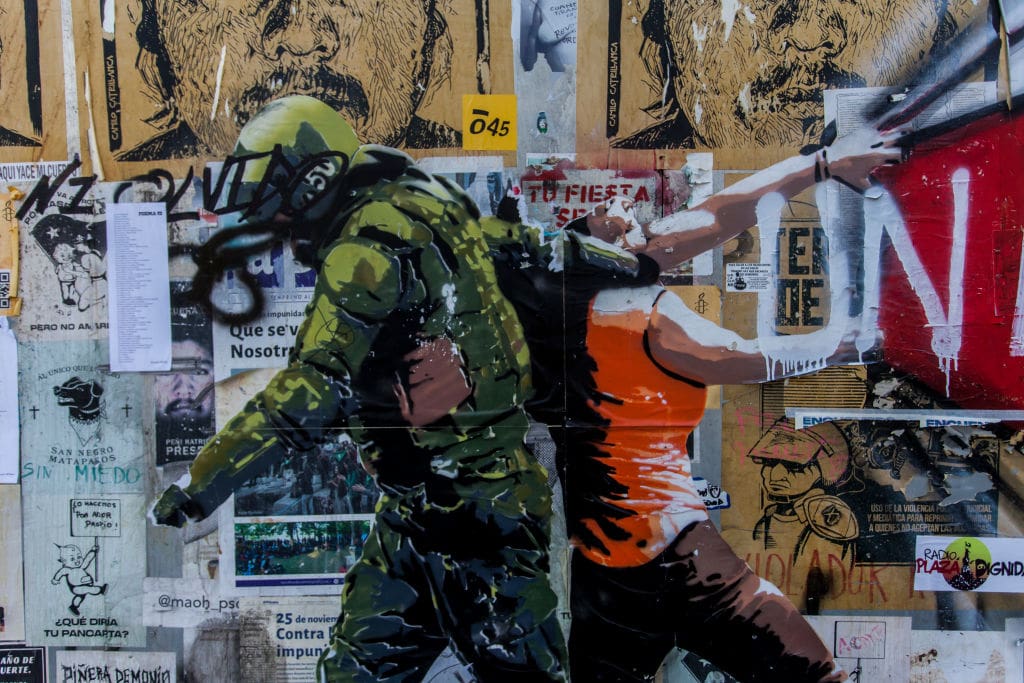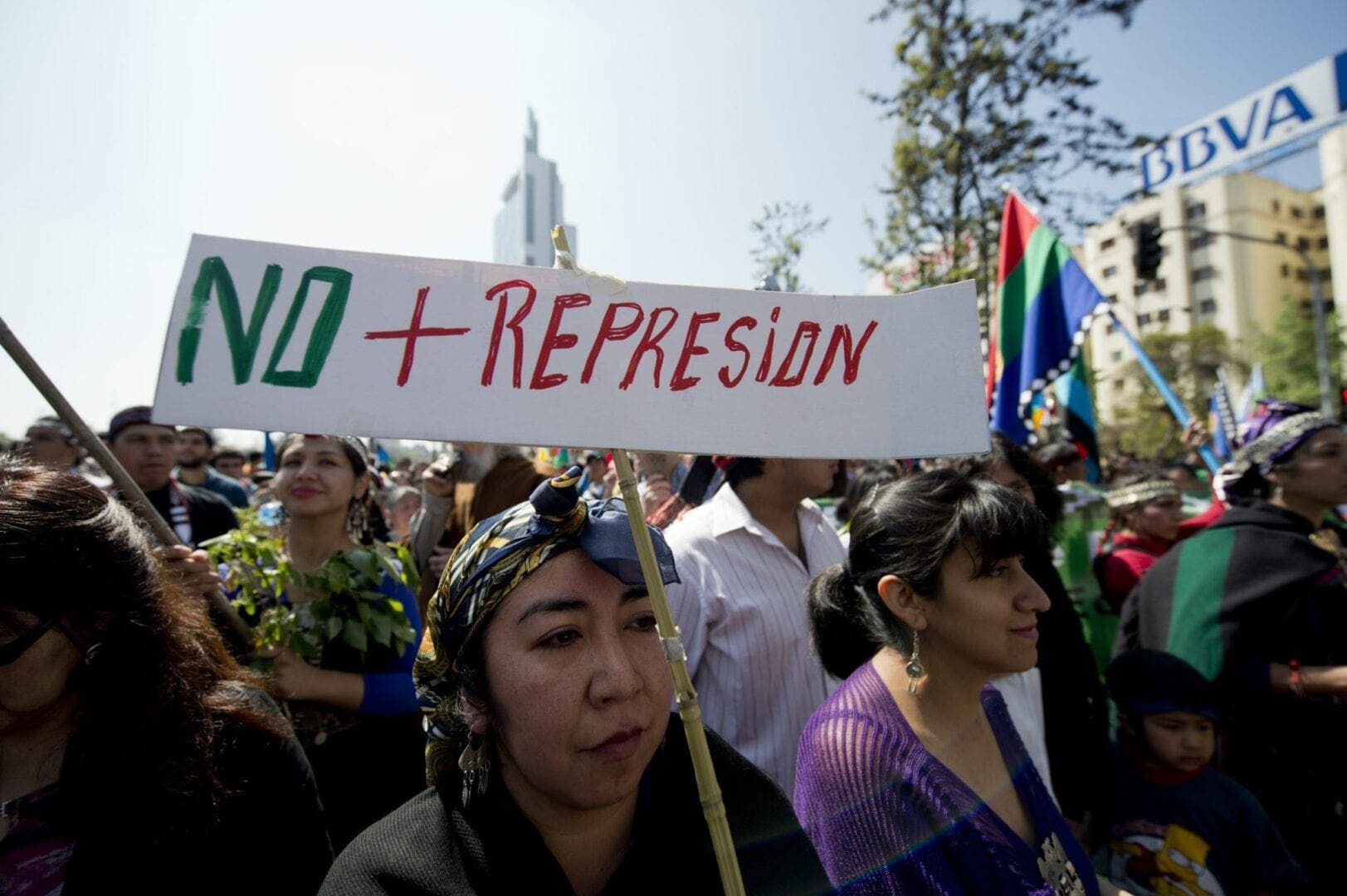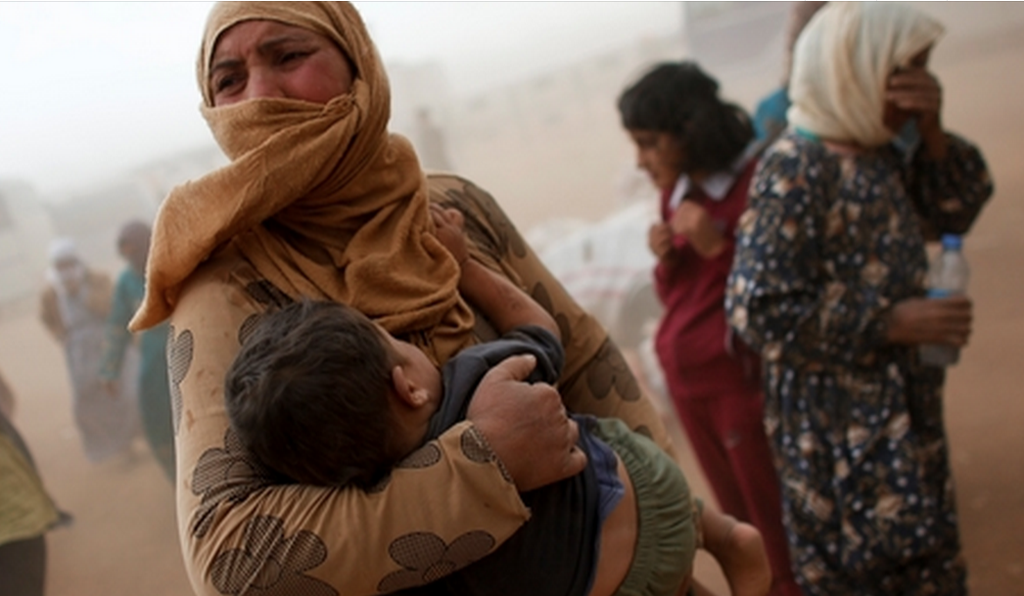The following information is based on the Amnesty International Report 2021/22. This report documented the human rights situation in 149 countries in 2021, as well as providing global and regional analysis. It presents Amnesty International’s concerns and calls for action to governments and others.
CHILE 2021
Protests continued during the year, mostly demanding the release of people detained in connection with mass protests in 2019-2020, many of whom were held in unjustified pretrial detention. Excessive use of force by the police persisted. The humanitarian crisis faced by thousands of people, mostly Venezuelans, trying to enter Chile through the northern border was exacerbated by mass expulsions.
Background
The “state of catastrophe” and curfew declared in response to the pandemic remained in force for most of the year. Covid-19 cases peaked between April and June, particularly affecting poorer communities. By the end of the year, the number of cases had fallen, following a successful vaccination programme, and restrictions were relaxed.
In July, the Constitutional Convention began work on drafting a new Constitution. Presidential and congressional elections were held at the end of the year; Gabriel Boric was declared the winner of the presidential election.
Excessive use of force
Protests continued, though on a reduced scale due to the pandemic. Excessive use of force by police continued; at least two further cases of eye injuries were recorded.
In February, a street juggler was shot dead by policemen in the town of Panguipulli. The Prosecutor’s Office for the Los Ríos region provided evidence that the fatal shot was fired while the victim was on the ground and immobilized. An officer was under investigation at the end of the year.
In March, the National Human Rights Institute reported that investigations into over 3,000 cases of human rights violations committed during the 2019-2020 mass protests had been halted. The National Prosecutor’s Office stated that almost half of its cases had been closed without charges being brought. In May, the National Prosecutor instructed all prosecutors to review their cases and consider reopening them if minimum investigative standards had not been met.
Some investigations did make progress during the year, including those relating to the injuries sustained by Gustavo Gatica and Fabiola Campillai
1 and those into the deaths of Manuel Rebolledo and Kevin Gómez.
At least six lawsuits filed against President Piñera and other current and former government officials for crimes against humanity under Chilean law were being investigated by the Valparaíso Regional Prosecutor. In April, lawsuits were filed against high-ranking police officers for failing to take action to stop the pattern of injuries to protesters.
At the end of the year, Congress was debating several bills to simplify access to civil reparations for victims and expressly prohibit harmful police conduct, such as sexual abuse during detention and use of less lethal weapons when policing protests.
In June, President Piñera announced the creation of a specialized human rights office within the Prosecutor’s Office, but this had not yet been established. The reform of the Carabineros (Chilean police) announced in 2020 had not yet been implemented.
Victims of eye injuries told Amnesty International that there were serious shortcomings in the government’s Comprehensive Programme for Eye Reparation.
Arbitrary arrests and detentions
After the 2019-2020 mass protests, hundreds of people were detained and charged with crimes allegedly committed during protests. This triggered further protests demanding their release. No state institution provided a comprehensive list of those detained, and Amnesty International received evidence of several instances of unjustified use of pretrial detention. In some cases, people were held in pretrial detention for around a year and were then acquitted or the case was closed for lack of evidence.
A bill to pardon those charged in connection with the mass protests was before Congress.
Indigenous peoples’ rights
In March, the Inter-American Commission on Human Rights began examining the admissibility of a petition submitted by three Mapuche men, José Tralcal, Luis Tralcal and José Peralino, convicted in an unfair trial in connection with a fire in which two people died.
In May, the Supreme Court confirmed the sentences of seven former policemen and a lawyer involved in the death of Camilo Catrillanca, a young Mapuche man, and the injuries sustained by a teenage boy who was with him, and in obstructing the investigation into the case. The two had been shot at by police during a pursuit of suspects in a robbery case, in which they were not involved. Three of the former police officers were set to serve prison terms.
In April, police shot and injured Mapuche leader Alberto Curamil while detaining him following a protest and then denied him immediate treatment. The protest was in support of Elena Paine, a Mapuche leader whose house had been set on fire the day before.
Sexual and reproductive rights
Congress rejected a bill which would have decriminalized abortion in the first 14 weeks of pregnancy. Legal abortion therefore remained restricted to three specific circumstances.
Chile reached a friendly settlement before the Inter-American Commission on Human Rights, admitting responsibility for the forced sterilization of a woman with HIV in 2002, and agreed to implement measures to ensure informed consent and access to health services without discrimination for people with HIV.
LGBTI people’s rights
A bill legalizing same-sex marriage was approved and Congress continued to review anti-discrimination legislation.
Human rights defenders
Harassment and attacks against environmental defenders continued. For example, death threats were made against Verónica Vilches, an activist working to defend the right to water in the Petorca province, and against Marcela Nieto, a member of the women’s movement combating air and water pollution in the Quintero-Puchuncaví sector, one of Chile’s “sacrifice zones” (geographic areas experiencing environmental damage or economic disinvestment).
A proposed law to ensure recognition of human right defenders was introduced into Congress in November.
Refugees’ and Migrants’ rights
Thousands of people, mostly Venezuelans, tried to enter Chile on foot across the northern border near the town of Colchane. At least 20 people died amid a humanitarian crisis intensified by the government’s inaction in providing accommodation and assistance to people seeking protection or providing resources to support them.
In April, a new migration law entered into force that severely restricts the ability of migrants and individuals seeking protection to regulate their status once in Chile.
Over 500 people were expelled without due process in what could amount to collective expulsions as a result of a government deportation plan. In some cases, people were informed late on a Friday that they would be deported that weekend, making it harder to challenge the expulsion. The National Human Rights Institute reported that in one case the police deceived Venezuelan nationals to get them to sign expulsion orders, telling them they were registration papers.

